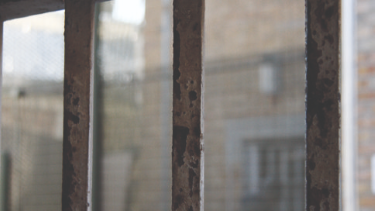Helen Bamber Foundation highlights profound psychological distress experienced by refugees separated from their families
The Helen Bamber Foundation (HBF) last week released a brief new report examining the profound psychological distress experienced by refugees in the UK who are separated from their families.
 The 12-page report, I Don't Have Family, I'm Not Breathing and I'm Not Alive, can be downloaded here.
The 12-page report, I Don't Have Family, I'm Not Breathing and I'm Not Alive, can be downloaded here.
It was published following the Government's recent suspension of the refugee family reunion visa route, which HBF says will have a devastating impact on the mental health of refugees in the UK. Refugees wishing to bring family members to the UK now need to apply under Appendix FM of the Immigration Rules and meet its stringent requirements.
The report states: "Separation from family members is one of the most significant factors contributing to poor mental health among refugees, often exacerbating symptoms of post-traumatic stress disorder, depression and anxiety. By restricting or delaying family reunion, the government's measures risk preventing refugees' recovery, ability to rebuild their lives, and their integration in the UK."
Drawing on research and HBF's day to day work with refugees who survived torture, the report highlights how family separation profoundly affects the mental health and recovery of refugees rebuilding their lives in the UK. A number of case studies in the report further illustrate the emotional toll of long and uncertain waits to be with family members again.
Between 2024 and 2025, HBF worked with 45 clients who had been granted refugee status or humanitarian protection in the UK and were seeking to reunite with relatives still living in conflict-affected countries such as Afghanistan, Sudan, Somalia and Palestine. More than 85% of these clients were trying to bring spouses and young children to safety through the (now suspended) refugee family reunion route, with three-quarters of family members being children under 18.
The report details how separation often first emerges as a key issue in therapy, with some HBF clients unable to engage in treatment due to distress and guilt over their families' situations. It also documents the transformative and "life-changing" impact of reunification, particularly for women who have spent years separated from their children.
Studies have found that refugees who are separated from their loved ones face more than twice the risk of developing depression, anxiety, post-traumatic stress disorder (PTSD) and suicidal thoughts compared to those who are reunited. The likelihood and severity of these mental health issues increase the longer families are kept apart.
HBF said: "We witness this every day the anxiety and agony of our clients who are forced to separate from their family. Much more rarely, we also witness the inexpressible joy of families being granted the permission to join our clients in the UK. We frequently support clients who are acutely suicidal. Their only identified 'protective factor' (mitigating the risk that they will try to die by suicide) is the fact that they know their family are alive and that they may one day be able to hold them again. We see clients going hungry each week, spending the meagre payments they receive for food to instead call their families – the Home Office does not consider 'communication' to be an 'essential living need' and so there is no allowance within asylum support payments for such calls. It is particularly cruel to snatch this lifeline away from those who are holding on to the dream of seeing their families again."
Following the suspension of the family reunion route, refugees now face a complex, lengthy and expensive process under Appendix FM of the Immigration Rules.
The report notes: "To sponsor a partner/spouse under this route, the application fee is £1,938 per applicant in addition to the Immigration Health Surcharge (IHS) which is currently £1,035 per year and rounded up to the nearest six months. For those granted visas under Appendix FM, they are given leave for two years and nine months meaning that the IHS is £3,105. The total cost for a wife and two children to be reunited with their father would be a staggering £13, 575. While applicants can apply for fee waivers, they have to show that they cannot pay or meet the income requirements, and this results in further delays and separation; the main application cannot be submitted before the fee waiver is granted. Decision making on fee waiver applications can be inconsistent and delayed."
HBF also warns that removing safe and legal routes to family reunion risks driving people into further danger, as refugees desperate to reunite with their children or spouses may turn to unsafe journeys or fall victim to trafficking and exploitation. The charity stresses that for those granted protection in the UK, family reunification is often the only safe option.
"To make refugees use the same routes available to British citizens not only ignores the issues that already exist with those routes, but will result in further delays that can be devastating for the refugee and their family. For family members facing persecution and conflict, it can be a matter of life and death," HBF says.
The report calls on the Government to urgently restore the family reunion route, reinstate legal aid for these complex applications, and ensure timely, fair decision-making to protect refugees and strengthen their recovery and settlement in the UK.